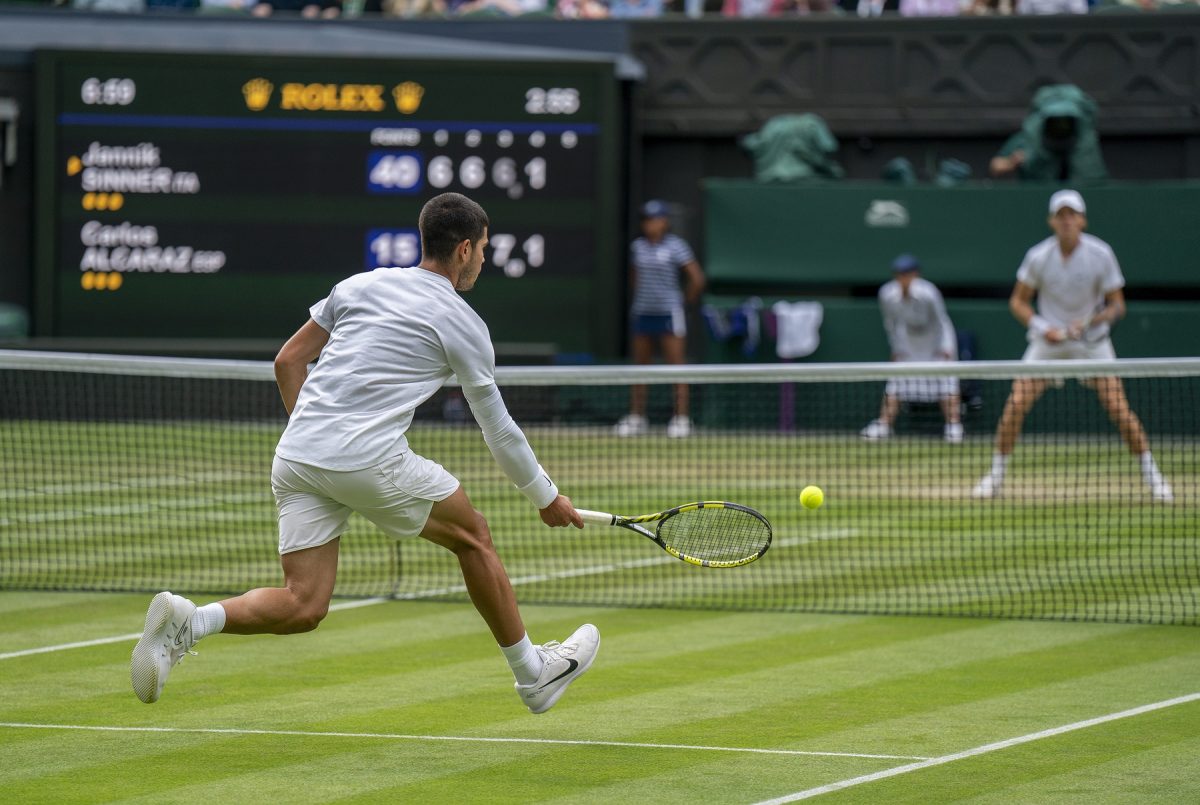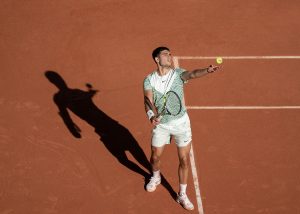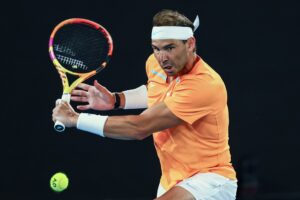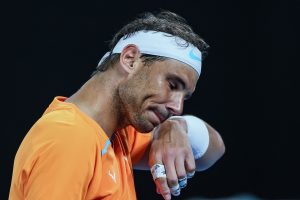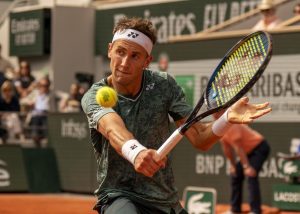This claim be met with much derision from some, and possible outrage from the many Carlos Alcaraz fans online. So allow me to start with the esteem I hold the Spaniard in.
I think it is possible that Alcaraz could emulate the achievements of the golden trio of Novak Djokovic, Rafael Nadal, and Roger Federer. In fact, I think he is the only current player who has a chance of doing that. My gut feeling at such an early stage of Alcaraz’s career is he will be remembered as one of the greatest players ever alongside those three legends I’ve already mentioned.
And my opinion is also not due to his difficult third round match against Nicolas Jarry. Although it did highlight the question of whether he can consistently produce on grass at a Grand Slam as I will mention below, my opinion in this article is one I held before that match.
Almost every part of the tennis media has labelled him as the second favorite for Wimbledon, and some outlets consider him the only man who can stop Djokovic. So why do I believe they are wrong?
Why Alcaraz is Not Djokovic’s Biggest Threat
1. The number of grass court matches Alcaraz has played
It is important to remember and easy for tennis fans to forget how little Alcaraz has actually played on grass. The US Open champion spent his childhood competing on clay and hard courts, and he never played a single match on grass when coming through the ranks on the Futures and Challenger Tours. After his third round victory over Nicolas Jarry, the #1 seed has now played a total of 14 professional matches on grass. It is yet to be seen if the admittedly exceptional Spaniard can produce seven quality best of five set matches on grass, and do it against the other players at the very top. That is a much more difficult task than the win he got at Queen’s Club.
Grass requires a different style of movement to any other surface, which Alcaraz has been learning, an extra challenge for a player with a lack of grass court matches compared to more experienced players. Alcaraz has also been attempting to adjust his technical game on grass as well. Therefore I think it is possible he could struggle more in moments of adversity deeper in the tournament against better players. On clay and hard courts Alcaraz has confidence from playing many previous matches where he has overcome difficult periods. On grass he might go under, and revert to habits that are less suitable on grass, which was seen at times against Nicolas Jarry.
2. Alcaraz’s style will hurt Djokovic less on grass
Alcaraz’s firepower will always lead to moments of stress for any of his opponents. But I think the weapons he has will not be as daunting for Djokovic compared to hard or clay courts.
First, his extraordinary movement is slightly slower on the surface that is he is still learning the most as I have already mentioned, while Djokovic is unquestionably still the best mover on grass despite now being 36 years of age. Alcaraz therefore will be less able to bring his huge forehand into play by moving around his backhand with slick footwork, handing Djokovic an advantage.
Second, Alcaraz’s best matchup to beat Djokovic is on slower courts with high bounce, evidenced by beating the Serb in Madrid, and fully matching him at Roland Garros before cramps curtailed what was shaping up to be one of the greatest Grand Slam matches. Alcaraz having slightly more time to wind up his forehand and hit through the ball with the bounce is a key weapon for the Spaniard. Although the Wimbledon grass is slower than in the past and the wear and tear from two weeks of play does make the grass less skiddy for the final, it is still a grass court and the low bounce and slightly faster pace still apply. Djokovic is more used to these elements, and I argue rallying with Djokovic under those conditions in such a pressurized environment for the first time would come as a shock to Alcaraz. It is not one he would overcome. He needs to gain more experience in the coming years against the other top players on grass.
The third factor is the manner in which Alcaraz comes to the net. Coming in as a surprise tactic is something the US Open champion seldom does; he usually does so off a good groundstroke to try and finish a point off. Having that variety to come to the net unexpectedly is an important change-up to have against the best grass court player in the world from the baseline. Currently I do not think it is something Alcaraz is comfortable enough doing.
3. A mental and physical question exists
Alcaraz is a US Open champion and one of the most exceptional talents tennis has seen, so confidence will rightly always be there. But the Spaniard will vividly remember the unexpected cramps he suffered at Roland Garros against Djokovic. He no doubt would have discussed at length with his team why those cramps occurred, and tried to make any necessary adjustments. Nevertheless a small element of uncertainty may exist, and could hand a mental edge to Djokovic. This could be amplified by the fact the cramps happened on Alcaraz’s most familiar surface. With the different movements on grass and the different strain that will have put him under over six matches, if Alcaraz did make the final against Djokovic, there may be a fear of a repeat of some type of physical concern.
The natural question many will then have is if it is not Alcaraz who has the best chance, then which player does? That’s a topic for another time, hopefully soon.
Main Photo Credit: Susan Mullane-USA TODAY Sports


